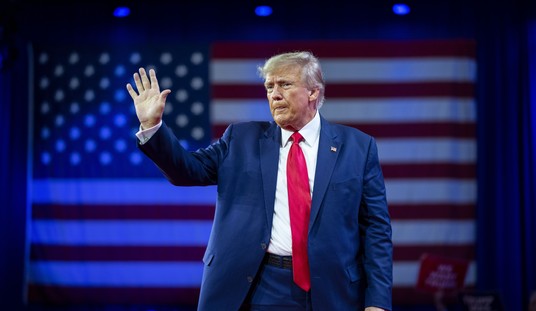Just as when the Republican establishment wrote off Scott Brown's effort to capture "Ted Kennedy's" seat in the Senate, the Washington Republicans may be underestimating the number of seats the GOP can capture in the House of Representatives.
Overconfidence is not a danger. Everybody is working as hard as they can to elect Republicans all over America. Nobody is apathetic on the right. The only indifference and passivity in the nation is on the left. But under-confidence -- writing off seats that we can win -- is a huge obstacle to further progress.
The swath of destruction Barack Obama has cut through our economy, banking system, manufacturing base and medical profession is so broad and ugly that Republicans and independents everywhere are determined to end his mandate by electing a Republican Congress in 2010. Seats that Republicans had no chance to win in previous elections are suddenly in play. With scores of Democratic incumbent congressmen polling at under 50 percent of the vote, the possibilities for Republican gains are enormous.
But Republican funding and tactical focus are having a hard time keeping pace with the political developments on the ground. Handicappers like Cook Political Report are slow in switching their predictions quickly enough, as the Republican wave sweeps through the nation. GOP national committees and PACs run the risk that they will concentrate too much money on races that are already won, leaving opportunities to rot on the vine in other districts.
Recommended
This process of underestimating the chances for Republican victories is fed by two mistakes in polling methodology -- and one in survey analysis -- which are understating Republican chances in the coming elections.
While most pollsters survey only likely voters, their screens to determine who will vote are too porous, letting through many who will not actually make it to the polls. Most surveys simply ask if voters are likely to participate or not, rather than asking how enthusiastic the survey participant is about voting. Rankings based on enthusiasm and intensity -- sure guides to actual turnout -- are generating far more Republican samples than those that are ultimately published.
And many pollsters are weighting their data so their samples conform to traditional party distribution. When their samples yield too many self-described Republicans and too few Democrats (as measured against historic norms), they weight down the Republican interviews and weight up the Democratic ones to adjust. But, in reality, they are obscuring the very findings of their surveys. Voters are becoming more Republican and Democrats are becoming independents. These trends are hard to spot when data is weighted.
Finally, in assessing the meaning of the polls, analysts are underestimating the ability of Republican challengers to defeat Democratic incumbents who are under 50 percent of the vote. The undecided vote usually goes to the challenger. A host of Republican insurgents with limited name recognition are running behind their Democratic incumbent adversaries because voters don't know who they are. But, if the incumbent is failing to win a majority of his district, these voters will likely go for the challenger when they learn his name as the campaign unfolds.
Taken together, these flaws in polling and the widening range of Republican capabilities should militate for readjusting GOP sights to aim at more Democratic districts and races that once seemed impossible. Overconfidence is not our problem. A lack of belief in our potential is.
























Join the conversation as a VIP Member